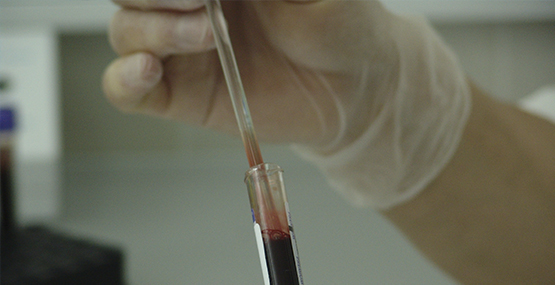
The Latest and greatest treatments for IBD: What to believe
What’s the best IBD medicine for me? Confusion on television and in your inbox....
See moresign up for our newsletter
SubscribeRisk L 7
The cancer rate is high in the United States for everyone over their lifetime with a small increase risk for those with Crohn's disease and a larger one for those with ulcerative colitis.
Lymphoma
If we take Non-Hodgkin's Lymphoma, the most common cancer associated with Crohn's disease and its treatment, a group of doctors reviewed the 26 different articles that record 13 lymphomas in 8905 adult patients (that's 1.5 in every 1000 patients) over the average 2 1/2 years they were studied, with certain biologic medicines (Remicade, Humira and Cimzia) raising the risk compared to the rest of us in the general population, but as Dr. Siegel concludes, "the absolute rate of these events remains low and should be weighed against the substantial benefits associated with treatment." (PF Dulai and others, Clinical Gastroenterology and Hepatology, 2014, pages 1443-51)
Older patients (those over 65) have a higher risk whether or not they were on these medicines. Other studies have had similar conclusions or else showed that other drugs, azathioprine (Imuran) or 6-mercaptopurine (together, these are the thiopurine medications) had a higher rate of causing lymphoma than the newer biologics, but just a mildly higher rate. Additionally, studies are now showing that those who have repeated CT scans are at increased risk of developing cancer.
T Cell Lymphomas
The combination of biologics and thioprines used together increases the risk for developing a rare cancer called hepatosplenic T cell lymphoma (HSTCL), particularly in young males (teens through their 30s). But fortunately, we now recognize 3 facts, that HSTCL
Because we now know this, the combination is rarely used in young males for very long, even though the risk for this type of cancer is only 1 person in 1,000 even when these medicines are used together. And the risk is much lower than that in their first 6 months together–that seems to be particularly important because the anti-TNFs work faster and better in those first few months if they are used with the thiopurines.
Skin Cancers
The thioprines increase the risk of developing skin cancers by 3 to 4 times compared to the rest of the population. The increase with biologics is 2 to 3 times the rest of the population). When biologics and thiopurines are combined to improve their impact on Crohn's disease, the combination also increases the risk of skin cancers to 5 or 6 times compared to the risk for the rest of us. Fortunately, these usually can be removed with surgery.

Colon Cancer
Although as many as 5% of those with ulcerative colitis develop colon cancer during their lifetime, that also means that 95% of those with ulcerative colitis won't have colon cancer. For those with Crohn's disease, the risk of developing cancer is lower (about 1% of those with Crohn's in the large intestine). But those are averages—the odds for any particular patient changes is based on a number of factors:
So it's especially important for UCees to
Crohn's Cancers
Those with Crohn's can get cancers in the colon too, if they have active disease there, though it seems to be less frequent than ones that come with ulcerative colitis. They can also get cancer in the lower intestine if they have had inflammation there for a long time (20 years is the length of time that's often quoted.
And both Crohn's disease and ulcerative colitis can be associated with a particular liver / bile duct cancer called cholangiocarcinoma, if they have a rare condition called primary sclerosing cholangitis.
Bottom Line:
Many thanks to Sally Lorimer for helping to balance the risks of IBD against those in our everyday lives.
This article, as well as all others, was reviewed and edited by a member of our Medical Advisory Board.
Subscribe Be the first to know